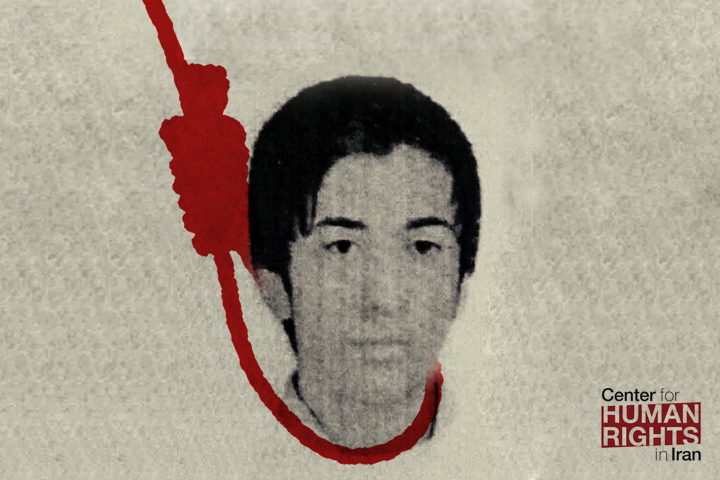CHRI – Prominent Lawyer Nasrin Sotoudeh: Case Had “Serious Holes”
August 10 – Iran has violated its international obligations by executing Alireza Tajiki, who was 15-years-old when he was arrested and 16 when he was sentenced to death, said the Center for Human Rights in Iran (CHRI).
 “The execution of Alireza Tajiki, who was just 16 when he was sentenced to death, again highlights Iran’s total disregard for children’s rights,” said CHRI’s Executive Director Hadi Ghaemi.
“The execution of Alireza Tajiki, who was just 16 when he was sentenced to death, again highlights Iran’s total disregard for children’s rights,” said CHRI’s Executive Director Hadi Ghaemi.
“The judiciary is not fooling anyone by using the tactic of holding children in prison and waiting until they’re legally adults to execute them,” he added.
Tajiki was arrested in May 2012 at the age of 15 for allegedly raping and murdering a 16-year-old male friend in the city of Fasa, Fars Province. He was sentenced to death in April 2013 after a criminal court in Fars Province, southern Iran, convicted him of murder and lavat-e be-onf (male homosexual rape).
Tajiki was hanged in Adelabad Prison in Shiraz, south-central Iran, on the morning of August 10, 2017, at the age of 21.
His lawyer, prominent human rights attorney Nasrin Sotoudeh, told CHRI other suspects were not fully investigated and Tajiki was tried as an adult for a crime he allegedly committed as a child.
“There are many serious holes in his case, but our requests for judicial reviews were denied several times,” Sotoudeh told CHRI on August 9, 2017.
“It is important that Alireza was accused when he was only 15, but in addition to that, evidence indicates he did not commit the murder or rape,” said Sotoudeh, who was imprisoned in Iran from 2010-13 for peacefully engaging in her profession.
Sotoudeh pointed out that Tajiki was considered medically “not fully mature” at the time of the crime, but the medical examiner’s conclusion was ignored and replaced with another mental evaluation that was conducted three years later.
Based on Article 91 of Iran’s Islamic Penal Code, the court could have halted the execution if there was “uncertainty” about his “full mental development.”
“Initially the medical examiner ruled that Tajiki was not fully mature to grasp the gravity of the crime, but when the medical board in Shiraz examined him three years later, it decided that when the crime was committed, he was mature enough to understand right from wrong,” Sotoudeh told CHRI.
“Their decision was questionable from a psychological standpoint because it would be very difficult to evaluate what the mental development of an 18-year old was when he was several years younger,” she said.
The initial medical evaluation was disregarded by the prosecution.
“Alireza Tajiki was mentally mature when the crime was committed and understood that it was wrong and therefore from a legal standpoint he was completely culpable,” said the prosecutor in the case, Ali Salehi, after the execution.
“Because this was a sensitive case, even the judiciary’s human rights division looked into it to make sure there were no problems in carrying out the ruling,” he added.
Sotoudeh had acted on behalf of the Tajiki family to get a stay of the execution, which had been granted twice before since May 2016.
“When the Islamic Penal Code was ratified, there was widespread publicity over claims by judicial authorities that the execution of juvenile offenders would be stopped,” said Sotoudeh. “However, we see these executions are on the rise.”
According to the International Covenant on Civil Political Rights (ICCPR) and the Convention on the Rights of the Child, it is illegal to execute someone for crimes committed under the age of eighteen. Iran is party to both treaties, but remains one among a handful of countries still putting juveniles to death.
“Iran continues to be a leading executioner of juveniles and must put an end to this inhumane practice, which is in violation of its international obligations,” said Ghaemi.
 Shabtabnews In this dark night, I have lost my way – Arise from a corner, oh you the star of guidance.
Shabtabnews In this dark night, I have lost my way – Arise from a corner, oh you the star of guidance.


